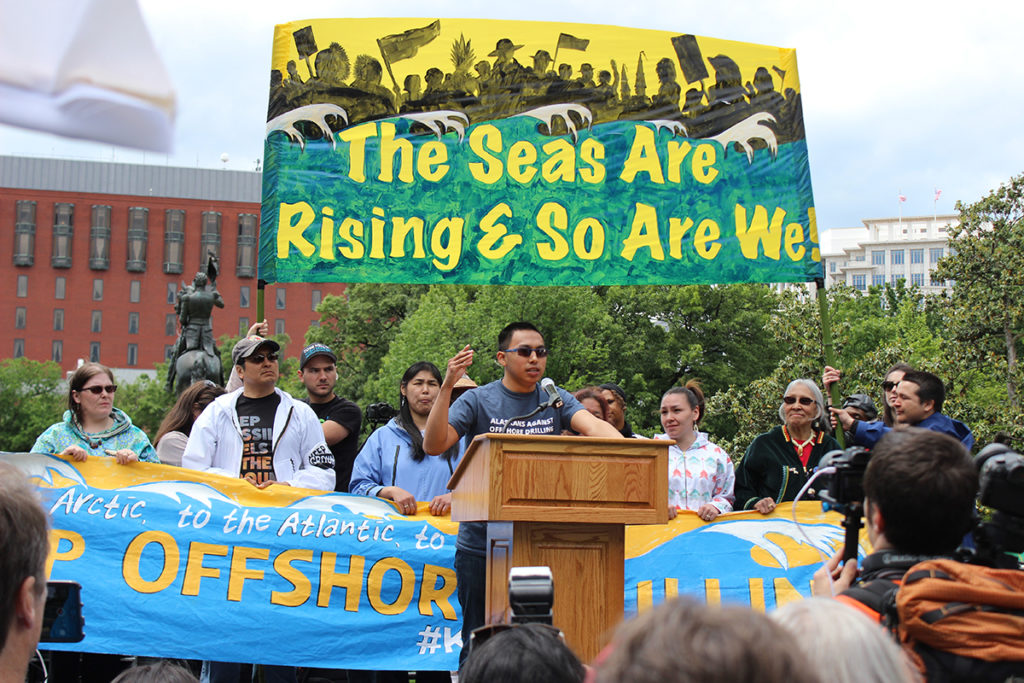Background on Race and Climate
There has been an ongoing focus on race and the environment in the United States since the 1980s when United Church of Christ ministers helped give birth to the environmental justice movement and coined the phrase “environmental racism.” In more recent years, environmental justice advocates have advanced some important discussions about race in relation to climate change.
While mainstream climate coverage might lead many to think that climate change is about endangered polar bears, melting ice caps, scientific studies, and global impacts that are universal in nature, environmental justice advocates have emphasized a lived climate reality that disproportionately impacts the poor, communities of color, and nations in the Global South. These environmental justice advocates have focused on reframing the conversation, so that it focuses on frontline communities that suffer from devastation wrought by climate impacts (drought, rising sea levels, hurricanes, floods, etc.) and fossil fuel extraction (pipelines, refineries, ports, mines, etc).
The lived reality of frontline communities brings health concerns to the fore. For example, studies show that black people are more likely to breathe in higher levels of air pollution than whites. They are also more likely to live within 30 miles of a coal plant, the high exposure zone for the pollutants that cause afflictions ranging from birth defects to heart disease. Environmental justice advocates have further highlighted how climate change is a threat multiplier for communities already suffering from a host of ills.
Scholars have studied and analyzed how different climate realities impact worldviews along racial lines. In comparison to other adults in a survey, white men were six times more likely to believe that climate change will never happen. A pair of sociologists have contended that this reflects how those with the most to lose if a different worldview is accepted resist adopting that worldview.
In addition to a focus on lived realities and worldviews, environmental justice advocates have always focused on institutional racism in their analysis. The leading environmental justice scholar Robert Bullard has noted that underlying climate change are the workings of an “apartheid system of global decision-making.” Bullard further states, “Equity has to take center stage because people who have contributed the least to climate change and global warming are the ones that feel it first, worst, and longest. So justice can’t just be a footnote. Justice has to be at the center of everything.” Add to this analysis a relatively new framework that contends climate devastation is a form of “slow violence” perpetrated by corporate and state powers.
A final highlight in the conversation by environmental justice advocates over race and climate pertains to the pursuit of solutions. This can be readily seen in the policy platform of the Movement for Black Lives entitled “A Vision for Black Lives: Policy Demands for Black Power, Freedom & Justice.” A review of this document by David Barre focuses on three important points in articulating a vision for moving forward:
- Divesting from Fossil Fuels and Investing in Community Solutions
- A Clean Energy Economy Is a Just Economy
- Putting People before Corporations in Our Democracy
In conclusion, environmental justice advocates have been redefining the conversation around climate. One can now find the headlines of articles proclaiming “Climate Change Is a Racist Crisis” and “Climate Change Is the New Color Line.” Environmental justice advocates have also articulated understandings for how the climate crises can be best addressed with an emphasis on justice, equity, and community-based solutions. As much as ever, these significant contributions to the climate movement need to be heard, heeded, and disseminated as far as possible.
The Rev. Dr. Brooks Berndt is the Minister for Environmental Justice for the United Church of Christ. He can be found on Twitter as The_Green_Rev.
Related News
Can a Small Church Make a Difference on Environmental Justice? Yes!
American anthropologist Margaret Mead once observed, “Never doubt that a small group of...
Read MoreChurch Launches Community Composting Opportunity
Coral Isles Church in Tavernier, Florida recently kicked off a community composting...
Read MorePostcards for the Planet: Engaging Environmental Voters This Election Season
During this election season, the Green Christians at the Coral Gables United Church of...
Read More
